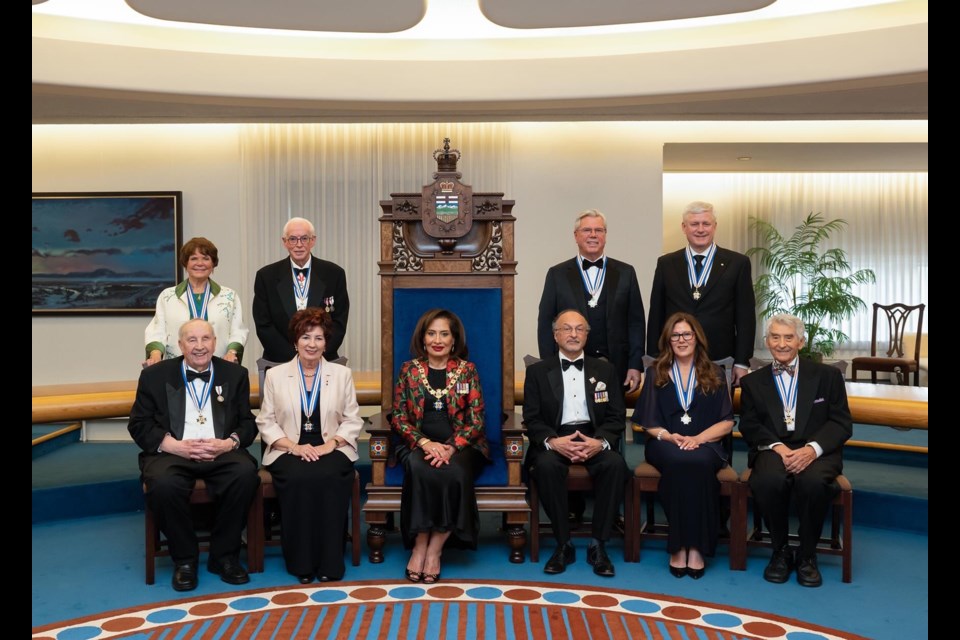COLD LAKE - In the City of Cold Lake, nestled in northeastern Alberta, a remarkable resident has been working to make a heartfelt difference in the lives of her community - and beyond.
Audrey McFarlane, a name that resonates with dedication, passion, and commitment, now finds herself in the spotlight as a distinguished recipient of the Alberta Order of Excellence. This recognition is a testament to her pursuit of positive change and the impact she has had on the people and places she has touched.
For over three decades, McFarlane has dedicated her life to helping individuals with disabilities, with a particular focus on Fetal Alcohol Spectrum Disorder (FASD). Her journey, which includes nearly half of her career spent at the Lakeland Centre for FASD, has been driven by a commitment to rectify the injustices faced by those affected by FASD.
McFarlane's dedication to this cause was born out of her profound understanding and empathy for individuals with disabilities. She recognized an inequality affecting the lives of those with FASD - a systemic problem where they were often discriminated against and denied access to essential services.
"I am very comfortable around people with disabilities, obviously, and I saw the folks with FASD were not being treated the same as everyone else,” she says. “They were being stigmatized or discriminated against; they were not having access to the same services as other people were; they couldn't get a diagnosis; they couldn't get specialized support services.”
It was in 1998 when Audrey gathered a team of local professionals to help diagnose and support individuals with FASD.
In 2001 Audrey created the first children's FASD Diagnostic Clinic under the guidance of the Lakeland Centre for FASD in Cold Lake. Audrey was its executive director where her mission was prevention, awareness, diagnosis, and treatment of FASD.
What started as a three-person office became a centre that led to it being a leader in prevention services.Then in 2012, 2nd Floor was opened in Cold Lake - a women's recovery centre that houses vulnerable women who are pregnant or at risk.
The Lakeland FASD Centre is one-of-a-kind with 50 employees in Cold Lake, and satellite offices in St. Paul, Lac La Biche, and Bonnyville.
Recognizing hard work
“The Alberta Excellence Award stands as a distinguished tribute to individuals who have left a significant mark on their communities or others. It is a symbol of recognition for those whose exceptional contributions set them apart from the rest," says Jonathan Piers, a spokesperson for the Alberta Government.
On Oct. 19, McFarlane graciously accepted her well-deserved honour at the Government House in Edmonton. With heartfelt appreciation, she sees her induction as a symbol of not just personal success but a testament to her journey.
Eight Albertans were recognized under the Alberta Order of Excellence this year. People from all backgrounds are eligible to receive the award, but they must be nominated by a peer, bystander, or co-worker. This year's recipients also included former Prime Minister Stephen Harper who comes from Bragg Creek, Jim Carter of Edmonton, Max Foran of Priddis, Joe Lukacs of Calgary, Claudette Tardif of Calgary, Stella Thompson of Calgary, and Angus Watt of Edmonton.
For McFarlane, the recognition she received is also a step forward for women. “To me, it represents that people have not just been successful in their careers but have really blazed a trail. For a lot of women, this award is about breaking some of those barriers that women have been denied before, in business or in politics.”
And it is because of the work being done by people like McFarlane that many people who have FASD can now get the help they need. The creation of the Lakeland Centre for FASD has opened doors and provided services to people with FASD that did not exist prior. The work being done in the Lakeland has become a template on a national level, with more programs and systems being created to assist those in need.
McFarlane says she could not do the work she does without the help of others, and noteably the support of her family.
“My family has been a tremendous amount of support, and doing this work takes a lot of time and effort. I gave up a lot of things, including time with my family and my children, and they've been very supportive through all of this. I just like to acknowledge that I couldn’t have done it without their support,” says McFarlane.



